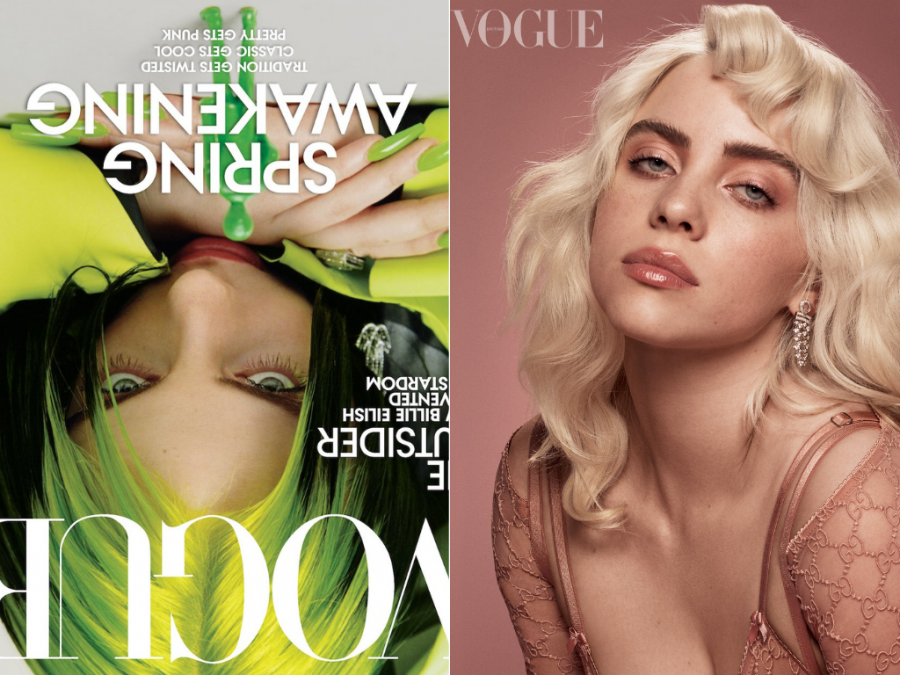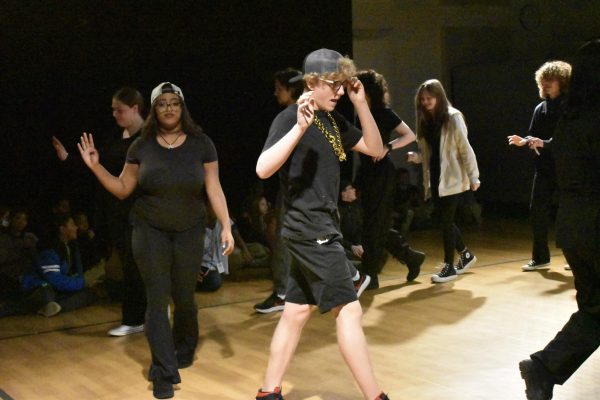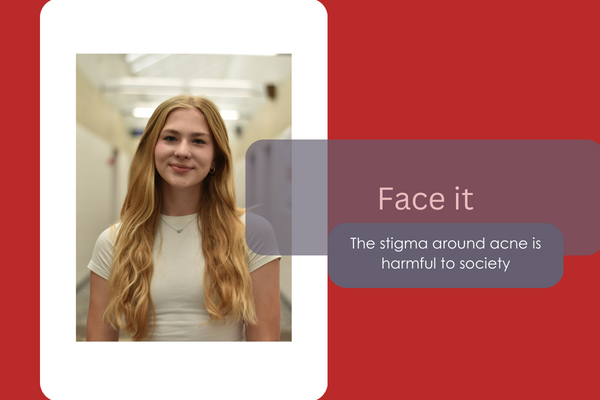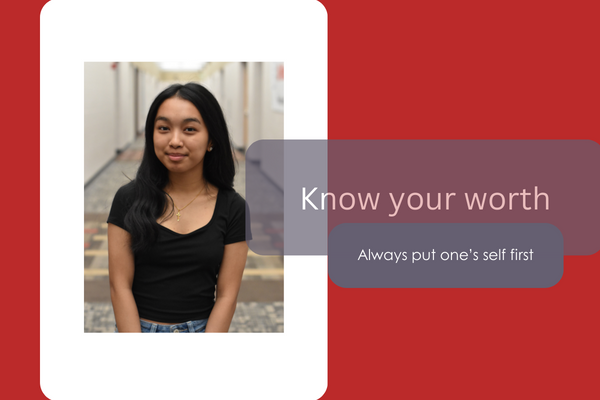A power move
Singer transforms her image with release of new song and style
Singer Billie Eilish’s most recent Vogue cover, coupled with her new song “Your Power” show a different side of her. The song was released on April 29.
When I saw singer Billie Eilish’s recent British Vogue cover, I did a double take. Modest to a fault, I had always considered her unlike other musicians because she dressed in ways that covered her body. But now she was in skintight latex, and I was shocked that she had finally broken free and decided to be herself.
Similar to outward transformation, Eilish’s new song, “Your Power,” realeased on April 29, has also transformed her look. This song is breaking barriers surrounding the conversation on grooming and sexual harassment. And I think it’s important that Eilish is finally pointing out how negative it is that sexualization is too normalized in our society.
When I first heard “Your Power,” I froze. My chest tightened, and I felt like I couldn’t breathe. This song had such an upbeat melody, but the pain in her voice was so distinct. She sang of a man who abused her. A man who groomed her despite the style of baggy clothes and grunge attitude she used to try and protect herself with.
Eilish exposes the pain of being groomed and sexualized for the world to see. The lyrics “She said you were a hero, you played the part. But you ruined her in a year” tell the story of a young, manipulated girl. She sings of how she fell for the charm of someone way too old for her and had been groomed by him as a result.
The lines “Try not to abuse your power” and “But power isn’t pain” add to the distraught cycle that a person goes through when an adult takes advantage of them.
Eilish’s new song is a perfect example of how people are objectified and abused even if they did everything they could to try and stop it. I love how her lyrics perfectly capture the internal conflict that people go through when groomed. How someone would vouch for their abuser, how the groomer would give excuse after excuse and how society often lacks the ability to change.
Along with her new song, Eilish changed her style. Looking back at her older style of dress during the beginning of her career, she was extremely modest. And to be truthful, I didn’t mind it because it made her different. Being covered in the sights of cameras made her unique to me.
It wasn’t until I saw a post on Instagram explaining why she hid her body in baggy clothes that I found it sad. The post said that she dressed in oversized articles of clothing to avoid getting sexualized. Ellish dressed this way not to distinguish herself from other artists but to protect herself from the stares and catcalls she experienced.
I felt disgusted as I read the comments. I was upset that, in so many other women’s experiences, they were viewed as sex objects. I was sad that I wasn’t surprised. The act of sexualizing young women is so normalized that it took a minute for me to figure out something was wrong in the first place.
In the comments, some criticized Eilish. Some said that it was stupid of her to hide her body, and others decided that describing her as “sexy” would be an appropriate response to learning that Eilish, at 13, wanted to remain unsexualized by the media. And I just felt such a deep sense of empathy.
Despite all of the negative views her image has previously received, seeing this change in her and watching her reclaim her body and sound made me proud. I had seen her go from a scared teenager to, finally, a confident young woman when I saw her on the cover.
Eilish’s new style and song isn’t just to show off her body or to exploit her past experiences, but it is to show that she came back stronger. Some might say she got rid of the “old her,” but in reality she just let the power that man had over her vanish.

Hello! My name is Bridget and I am a senior at SHS. I am also the entertainment editor for the 2021-2022 school year. Since this is my first time being...












